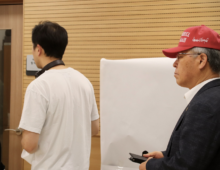Due to popularity of streaming services and increasing ticket prices, only a few Korean films recouped production costs
Experts anticipated the South Korean film industry to rebound in 2023, with pandemic restrictions and fears over. However, contrary to these expectations, the industry faced a stark reality. While the U.S. film market saw a resurgence with successful viral marketing campaigns like “Barbenheimer,” the Korean film scene struggled, with only a few films achieving profitability.
This unexpected downturn signaled a critical moment for an industry at a crossroads, challenging its traditional strategies and market dynamics.
Experts anticipated the South Korean film industry to rebound in 2023, with pandemic restrictions and fears over. However, contrary to these expectations, the industry faced a stark reality. While the U.S. film market saw a resurgence with successful viral marketing campaigns like “Barbenheimer,” the Korean film scene struggled, with only a few films achieving profitability.
This unexpected downturn signaled a critical moment for an industry at a crossroads, challenging its traditional strategies and market dynamics.
Get your
KoreaPro
subscription today!
Unlock article access by becoming a KOREA PRO member today!
Unlock your access
to all our features.
Standard Annual plan includes:
-
Receive full archive access, full suite of newsletter products
-
Month in Review via email and the KOREA PRO website
-
Exclusive invites and priority access to member events
-
One year of access to NK News and NK News podcast
There are three plans available:
Lite, Standard and
Premium.
Explore which would be
the best one for you.
Explore membership options
© Korea Risk Group. All rights reserved.
No part of this content may be reproduced, distributed, or used for
commercial purposes without prior written permission from Korea Risk
Group.












